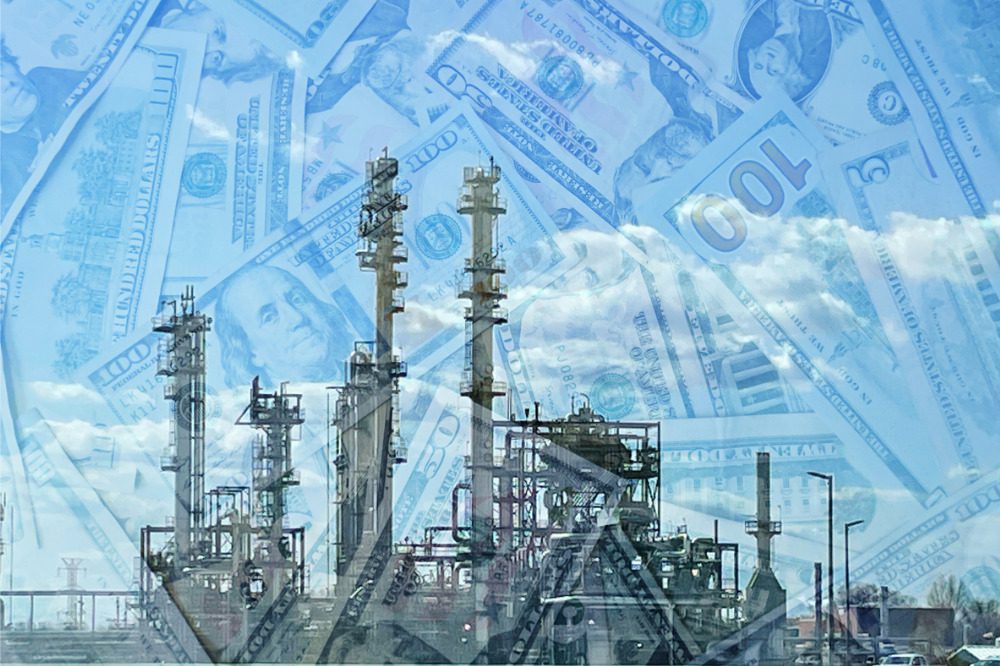Canada’s energy sector: "We need to start telling our own story"

“It is by no means a small pocket industry,” said Jocelyn Scherer, VP, senior account exec – energy at NFP Canada. “The energy sector contributes to Canada’s national success, and those of us that are in the industry or support the industry are really proud of it.”
Despite being such a core contributor to the Canadian economy, the energy sector gets a lot of negative press. With pressures around climate change, sustainability, and environmental, social, and governance (ESG) issues intensifying worldwide, the energy sector has been publicly tarnished as a ‘dirty’ industry – but people are failing to take in the big picture.
“For too long, the energy sector has let other people tell its story, and that has hurt the industry,” said Scherer. “But I think, for good reason, there’s been a bit of a wake-up call and more acknowledgement that we need to start telling our own story.”
Canada is a net exporter of most energy commodities and is a significant producer of natural gas, hydroelectricity, crude oil, and other liquids. Most of Canada’s energy exports are destined for the United States, but its international exports (primarily oil via the US Gulf Coast) have seen strong growth in recent years.
Oil exports in Canada reached an all-time high of $13.85 billion in the month of June 2022, according to Trading Economics, rounding out a total of more than $72.46 billion in the first six months of the year. Furthermore, Canadian oil sands operations pay hundreds of billions in provincial and federal taxes every decade, contributing greatly to the domestic economy. Those are the type of statistics that the industry has failed to use to its advantage.
Read next: Energy industry has an ‘undeserved bad reputation’ – NFP expert
Then there are the ESG pressures. In recent years, the energy sector has been heavily scrutinized through the ESG agenda, with particular focus on the environmental portion and all things related to carbon emissions.
“I don’t think you’ll find anyone – even deep in the energy sector in Alberta – who doesn’t think the environmental portion of ESG is important,” Scherer told Insurance Business. “There’s general acknowledgement that reducing carbon emissions is important. Canada is transitioning away from carbon, but we as a country desperately need to support the energy sector and their role in that transition because they’re the ones that are funding the research and development and the technology advancements for where we’re going. If we don’t support this sector that is supporting our energy transition into the future, I think we’ve really lost the plot.”
According to the Oil & Gas Journal, Canada had 168 billion barrels of proved oil reserves as of January 2022, ranking fourth in the world, behind Venezuela, Saudi Arabia, and Iran. This means Canada has the ability to contribute to the future energy demands of the world, if the sector receives the support it needs.
Importantly, Canada is also a world leader in ESG. The RobecoSAM Country Sustainability Ranking (summer 2021) ranked Canada in the top 13 countries worldwide, with an ESG score of 8.0 or higher, placing this energy-heavy economy close to sustainability leaders in the Nordics, like Sweden, Finland, Norway, and Denmark.
“The global population is expected to rise to around nine billion by 2040, and the global energy demand is expected to grow by 30% over that same period, with oil expected to continue as the largest contributor to meeting that demand, at around 27%,” said Scherer. “In short, this industry is not going away, and of the countries that have oil reserves, Canada’s strength from an ESG perspective is very attractive.”
Energy companies not only have to change their narrative to the world at large; they also need to convince the insurance markets. Scherer said insurers are “under a ton of pressure” from their boards, from investors, from activists, and from colleagues and friends to “Say no!” to oil. As such, she’s seen a billion dollars of capacity leave the energy insurance market since 2018.
“There is still capacity to be had, but I think everyone has realized that we’re all collectively and independently searching for solutions for if that [capacity exodus] continues,” she said. “A wonderful silver lining is the opportunity for clients and brokers to really partner with the insurance markets that are still around, and to leverage those partnerships to develop long-term, sustainable, and differentiated risk solutions.”
Read more: Canada’s oil and gas industry “leading the way” in reducing carbon emissions
Brokers can also play a key role in helping clients tell their stories. For energy clients that are advanced in their ESG strategies, brokers can provide them with the means and the opportunity to tell their stories, and can support them in doing that, particularly in the insurance market.
“That’s how I see our role – and boy, do some of these companies have good stories to tell,” said Scherer. “Some clients are just exceptional. For example, we work with a large oil and gas company in northern Alberta, who has put more financial and social support into the local Indigenous communities than the federal and provincial governments combined. It’s those stories that aren’t told, and we need to give clients an opportunity to tell them.
“For the clients that maybe haven’t found their way yet, the nice part about being a broker is we can help them to understand ESG best practices and what the insurance community is looking for in order to unlock capacity that they otherwise wouldn’t have access to. We can help them down that path. It doesn’t matter where people are on the scale; what’s important is that everyone is making progress.”
As a Canadian citizen and an energy insurance broker, Scherer said she is “excited” and “proud” to tell the good news story of Canada’s energy sector and its ability to help meet global energy demands.
“There’s a lot of people in the world that would love to live how we live in North America, and they need energy to do that,” she said. “Where is that energy going to come from? And what quality is that energy source going to be? For me, I’m proud of this sector, I’m excited about it, and as a broker, there’s always a new and exciting challenge.”





